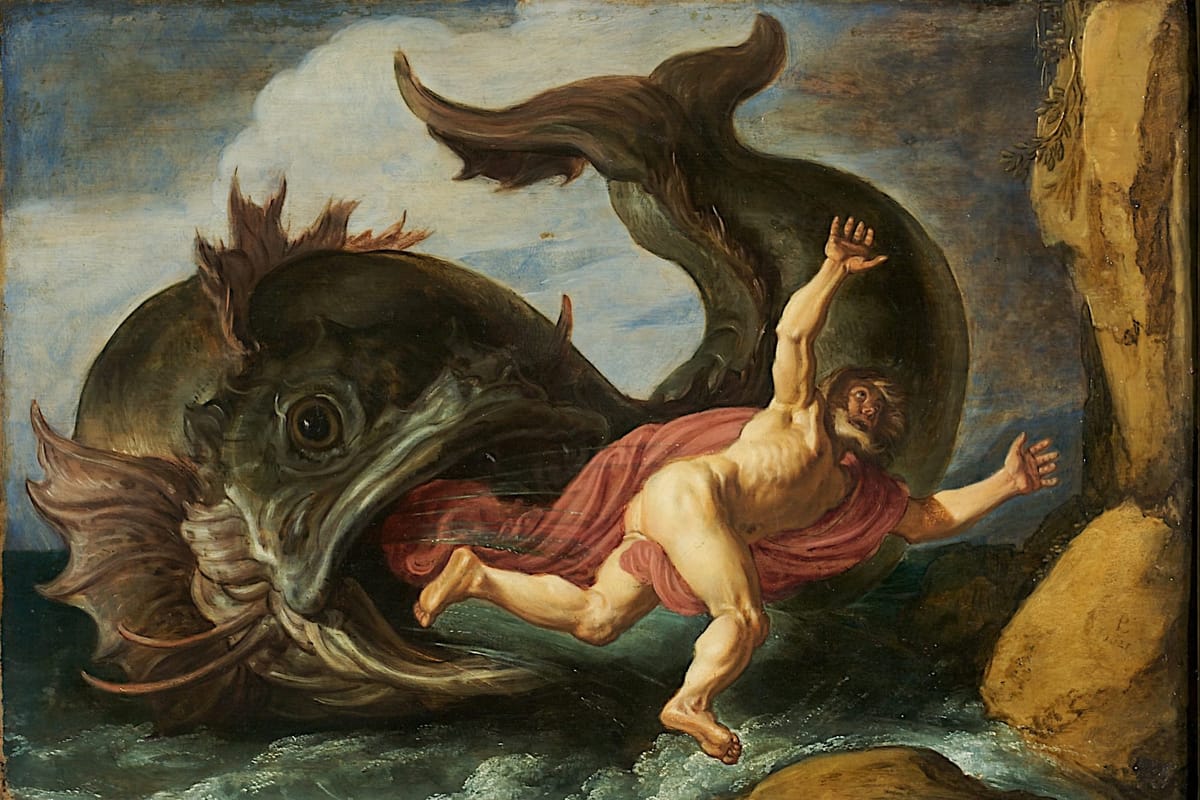The Book of Jonah
I will sacrifice to you with thanksgiving.

Key words
- Spare: to not hurt or destroy something or someone
The Israeli army does not spare women and children.
- Miracle: an unusual and mysterious event that is thought to have been caused by a god because it does not follow the usual laws of nature
Jesus Christ performed miracles.
- Mythical: existing only in stories
The ancient Greek philosopher Plato was the first person to write about the mythical island of Atlantis.
- Archaeologist: someone who studies the buildings, graves, tools, and other objects of people who lived in the past
Archaeologists recently excavated the remains of an Anglo-Saxon settlement.
- Excavate: to remove earth that is covering very old objects buried in the ground in order to discover things about the past
Archaeologists are excavating a site near the cathedral.
Read the article to find the answers
- Why did Jonah hate the people of Nineveh?
- Why was Jonah angry with God?
- What did Jesus say about Jonah?
- What does Sir Austen Henry Layard have to do with the Book of Jonah?
The Book of Jonah
The Book of Jonah is one of the shortest books in the Old Testament. It tells the story of Jonah, a prophet sent by God to tell the people of Nineveh to stop doing evil. At first, Jonah hated the people of Nineveh because they were so wicked and tried to sail away in the opposite direction instead of obeying God. Then Jonah was thrown overboard in a violent storm and swallowed by a great fish, and after three days the fish spat him out onto dry land.
Jonah then obeys God and goes to Nineveh and tells them that the city will be destroyed in forty days if the people do not stop their evil deeds. The people of Nineveh repent and God spares the city. Jonah becomes angry with God for being so merciful, and God then reminds him that his compassion extends to all people, including those who can't tell the difference between left and right.
Jonah in the New Testament
When the religious leaders heard that Jesus had been miraculously curing people they asked him to show them a miracle. Jesus, foretelling his death and resurrection, told them that they would see the sign of Jonah:
"The only sign will be the miracle that happened to the prophet Jonah. Jonah was in the stomach of the big fish for three days and three nights. In the same way, the Son of Man will be in the grave three days and three nights."
The Discovery of Nineveh
For centuries, Nineveh was considered by many to be a mythical city until the British archaeologist Sir Austen Henry Layard began excavations near modern-day Mosul, Iraq, in the early 1840s.
In 1847, Layard discovered the remains of Nineveh, including the Library of Ashurbanipal, which contained over 20,000 clay tablets inscribed with historical records, legal documents, scientific writings and other texts on a wide range of subjects, including the Epic of Gilgamesh.
The discovery of Nineveh is one of the most significant achievements in archaeology, providing a wealth of information about Assyrian civilisation and confirming the historical accuracy of the Bible.
Discussion questions
- Do you have any questions about any of the vocabulary or grammar in this article?
- Have you read the Book of Jonah?
- What do you know about Iraq?
- What do you know about the Epic of Gilgamesh?
- Have there been any significant archaeological discoveries in your country?

Book a Lesson
Improve your English language communication skills by practicing with a qualified and experienced native speaker.





